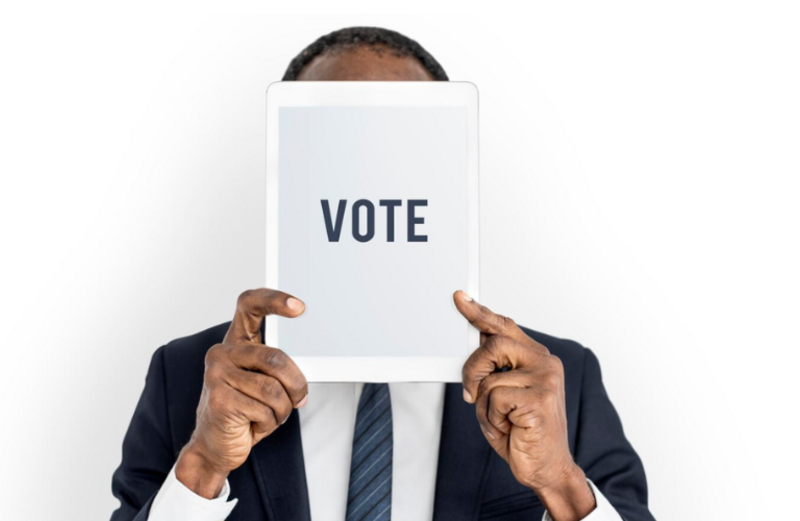Promise and Peril
As Time magazine has dubbed 2024 a “super election year,” a staggering 4 billion people worldwide are eligible to vote. A significant portion of these voters are on the African continent, where numerous presidential, parliamentary, and general elections are either underway or slated for the latter half of the year.
In this pivotal year, Artificial Intelligence (AI) is set to play a crucial role in shaping electoral processes across many countries. AI systems are increasingly being used to analyze voter patterns, run automated chatbots for voter engagement, authenticate voters, and detect cyber threats. However, the integration of AI in African elections is met with both anticipation and apprehension, raising questions about its implications for democracy.

The Dual Nature of AI in Elections
AI’s impact on electoral democracy in Africa is influenced by two primary factors: public trust in AI and the ability of African states to regulate and oversee its use by all political stakeholders. While AI holds the potential to enhance electoral legitimacy, it also presents significant risks.
Promising Applications:
- Kenya’s 2022 Umati Project: Utilized natural language processing to monitor and remove hate speech from social media.
- Sierra Leone’s 2021 Election Monitoring: Used AI to counter disinformation and incitement to violence.
- Ghana’s 2020 Election: Employed facial recognition technology to verify voters and prevent impersonation.
- Nigeria’s 2019 Elections: Implemented an Automated Fingerprint Identification System to detect duplicate registrations, enhancing voter roll accuracy.
Perilous Pitfalls:
- Kenya’s 2017 Election: Cambridge Analytica allegedly used AI to disseminate disinformation, potentially influencing election outcomes.
- South Africa: Anonymous influencers utilize AI to inject polarizing and emotive content into political discourse, contributing to misinformation.
Challenges and Ethical Concerns
Electoral bodies in African countries face several obstacles, including a scarcity of skilled professionals in data science and machine learning, limited technological infrastructure, and regulatory and policy gaps. Ethical concerns also loom large, such as inadequate data protection and the potential misuse of AI for surveillance, as seen with Kenya’s Huduma Namba national ID system and Nigeria’s telecommunications companies.
Building Trust and Governance
To harness AI’s potential while mitigating risks, African countries must address ethical concerns and build public trust. This involves developing robust normative, institutional, and collaborative frameworks for the fair, transparent, and accountable use of AI in elections. These frameworks should promote African cultural values, protect human rights, and prevent electoral manipulation.
Public trust in AI can be fostered through awareness and education campaigns, transparency, and accountability mechanisms that sanction breaches of trust and law.
Existing Initiatives and Future Directions
Several initiatives offer valuable lessons for AI governance in elections. The Association of African Electoral Authorities’ Principles and Guidelines for the Use of Digital and Social Media in Elections in Africa provide a useful reference. Moreover, countries like Egypt and Kenya are already addressing AI’s challenges and opportunities through bodies such as Egypt’s National Council for Artificial Intelligence and Kenya’s Distributed Ledger and Artificial Intelligence Taskforce.
Solid governance will be crucial for integrating AI systems to promote the legitimacy of African political processes. By developing their own AI systems tailored to local needs, African states can exercise sovereignty and ensure that technology serves to enhance, rather than undermine, their democratic processes.





